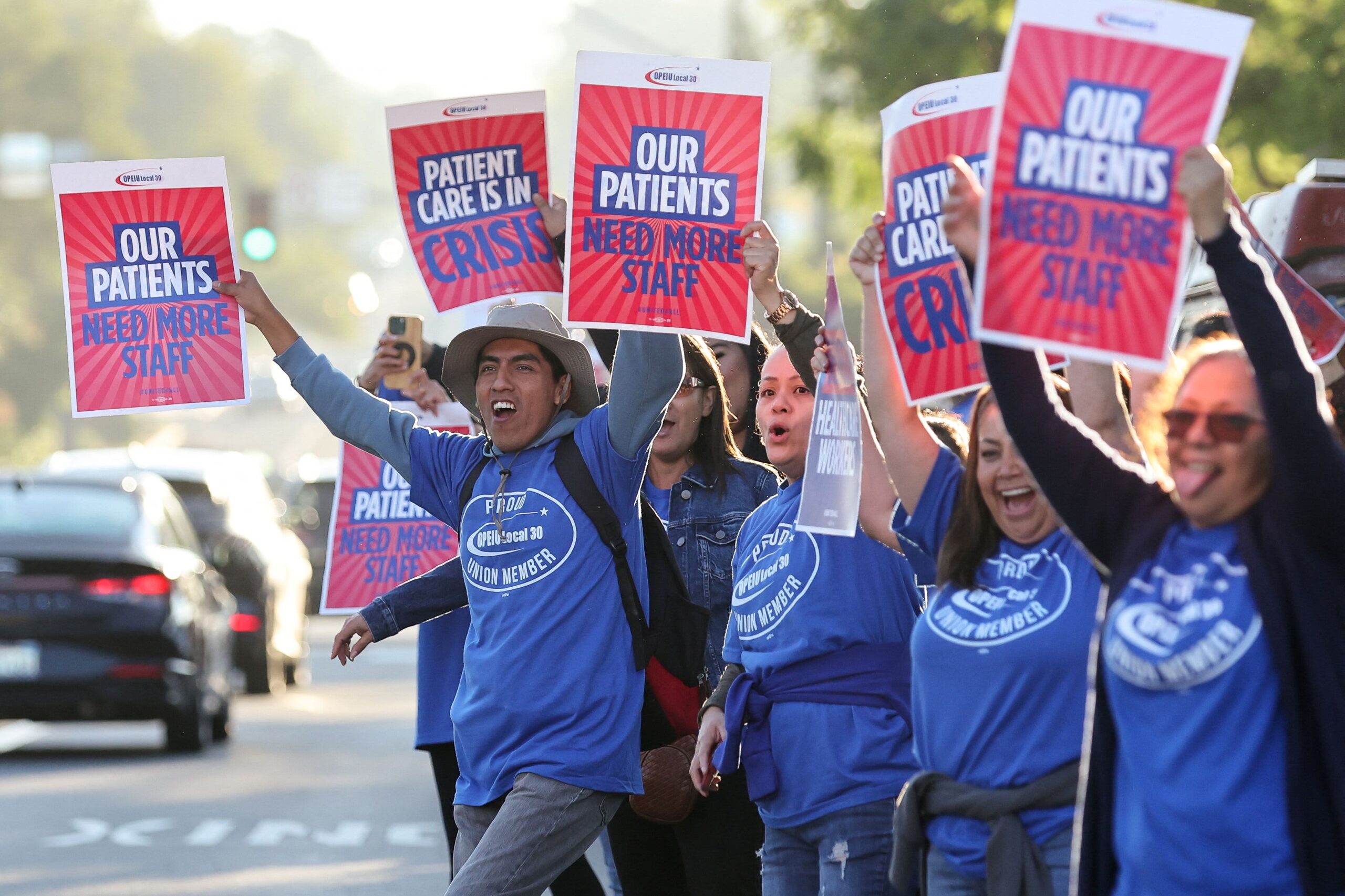
Record-Breaking Kaiser Permanente Health Care Strike Demands Staffing Solutions
Health care workers from across the United States joined forces in a historic strike against Kaiser Permanente, one of the nation’s largest nonprofit health care providers, to address staffing shortages that have escalated during the COVID-19 pandemic.
More than 75,000 workers, including nurses, pharmacists, emergency department technicians, and others, participated in the strike, spanning California, Colorado, Washington, Oregon, Virginia, and Washington, D.C. This action, described as the largest health care strike in history by unions, aims to pressure Kaiser into resolving the staffing crisis. Most participants will strike for three days, concluding on Saturday, with the exception of those in Virginia and Washington, D.C., who will strike for 24 hours.
Patient Impact
Kaiser Permanente has assured patients that its hospitals and emergency departments will remain open during the strike, staffed by physicians and other essential personnel. The organization plans to bring in professionals to handle critical care roles during the strike. However, non-emergency and elective services may be rescheduled, and outpatient pharmacies might temporarily close, although inpatient pharmacies will remain open.
Staffing Crisis and Union Claims
The strike is a response to a staffing crisis that workers assert has created challenging working conditions and led to difficulties retaining Kaiser employees, ultimately affecting the quality of patient care. Kaiser data obtained by the unions indicate that approximately 11% of union positions were vacant in April of this year.
The unions allege that Kaiser has engaged in unfair labor practices by failing to engage in good-faith negotiations to address the staffing issue. In contrast, Kaiser denies these claims and has urged workers not to strike to prevent harm to patients.
Workers seek improved wages and working conditions to attract and retain staff, ultimately alleviating the staffing shortage. While both sides have made progress on certain issues during recent negotiations, significant disparities remain, particularly concerning wages and benefits.
Kaiser’s Proposal
Kaiser has countered with proposed raises ranging from 12.5% to 16% over four years. The organization also emphasized that it is close to reaching its goal of hiring an additional 10,000 union workers by the end of 2023 to fill vacancies. It contends that staffing shortages and burnout are industry-wide concerns and that its compensation and benefits packages are competitive.
Unions, however, argue for nearly a 25% pay raise for all members and improved benefits, including retiree medical coverage, asserting that these measures would incentivize staff to stay. The unions maintain that Kaiser’s commitment to hiring more workers is a step in the right direction but that it must address the ongoing attrition by substantially increasing wages.